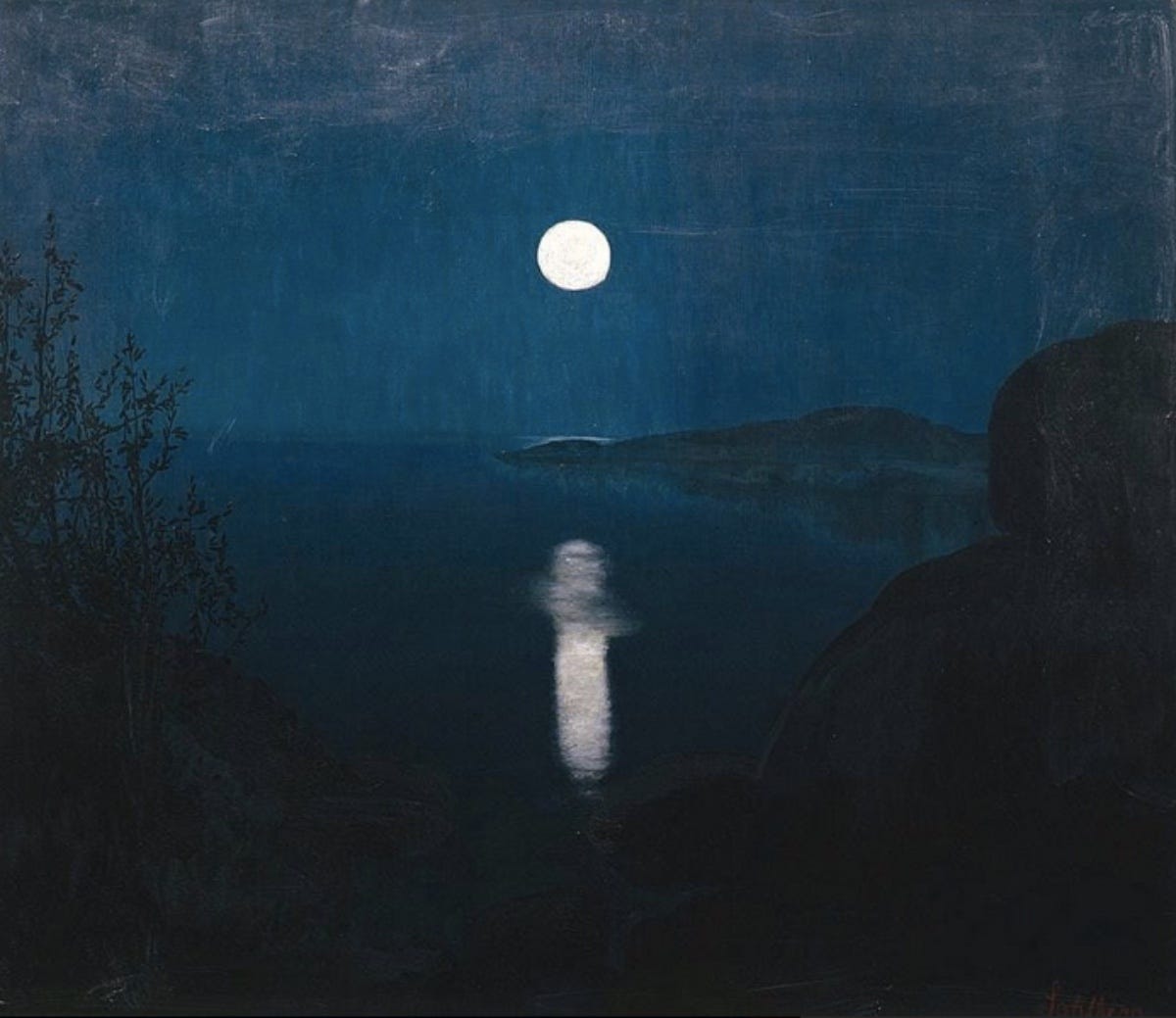Day 29: Does The Moon Dream of Icarus?
On Nina MacLaughlin's column 'The Moon in Full' for The Paris Review

I’m quickly becoming a big fan of the writer Nina MacLaughlin. The latest installment of her Paris Review column, The Moon in Full, is an excellent example of an essay with unusual structure and approach, a reminder of the wonderful things that can happen when a writer gets a little weird. Here, the essay is presented as a questionnaire submitted to the moon itself. The questions begin with near comical simplicity (“How did you hear about the planet earth?” “In general, are you glad to be tethered by gravity to planet Earth?”) and spiral into the baroque:
“When […] a human being rounds a corner down Ash Street toward the river and finally remembers to look up, and sees you through the branches of a magnolia tree, bare at this wintry moment in the year, and the human being gasps and thinks in her puny human-being brain, “There you are,” where you is you, the moon […] Do you mean it when you do that? When you dissolve our woes? Is it intentional? Are you aware of this, your own power and/or magic?”
It’s a slow build up to one massive cathartic sentence that holds the weight of the whole piece within its grasp. Here’s the full series, which began last year.
I first became aware of MacLaughlin through her previous column, a five-part series called The Senses of Dawn. A later series, Summer Solstice, was turned into a short book (Black Sparrow Press, 2020). Her other books are Hammer Head: The Making of a Carpenter (W.W. Norton, 2015), and Wake, Siren: Ovid Resung (FSG Originals, 2019).
Can you think of any other essays that are presented in the above form, as a questionnaire, or something similar?
xo
SB


“Why I don’t write” by Susan Minot.
I have not read Nina MacLaughlin, but now I most certainly will. I love this paragraph. To me, it is playful (in the broadest since of the word) in a way I think more essays, fiction, etc. should be, even when serious. Don Quixote is ultimately a very serious work, but the idea of play, that keeps us from sinking under the weight of our personal sorrows. This paragraph makes me think of - and I'm not saying she's imitating him, I mean this as a high complement - of some of the best of Italo Calvino's work. And it certainly makes me think of his posthumously published short collection of lectures at Harvard, 'Six Memos for the Next Millennium'. That is to say, if he were to read just this paragraph, I am guessing Calvino would say, 'yes, this is the aesthetic I was talking about...' I want to read all of her work as soon as I can. Thank you, Summer.